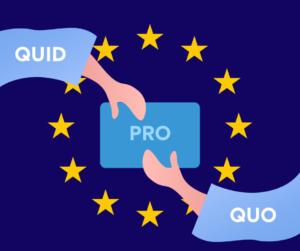Headquarters: Svetog Nauma 7, 11000
Office address: Đorđa Vajferta 13, 11000
Phone:: +381 11 4529 323


Programme Manager and Senior Researcher

Chief Strategist
Taking over the presidency from Germany in the midst of the COVID-19 pandemic, the Portuguese Presidency was driven by the motto: “Time to deliver: a fair, green and digital recovery”. Under this slogan, Portugal has developed a presidency programme with a focus on five main areas in line with the goals of the EU’s strategic agenda: Resilient Europe; Green Europe; Digital Europe; Social Europe; and Global Europe. Six months ago, the European Policy Centre (CEP) analysed what might be expected from the Portuguese presidency; now, this blog assesses whether and to what extent Portugal has fulfilled its priorities in the first half of 2021.
The first priority under Resilient Europe consisted in the smooth and timely implementation of the Recovery and Resilience Facility (the Facility) in order to effectively recover from the crisis and lay foundations for sustainable growth and job creation. In order to lead by example and thus encourage positive practice, Portugal was the first member state to have officially submitted the final version of its national recovery and resilience plan to the Commission. Ever since, all member states but one have followed Portugal’s lead. Considering the complexity of these plans this can be seen as a major achievement of the Portuguese presidency.
Moreover, during the Portuguese presidency, all EU member states managed to approve the Own Resources Decision, without which the Facility would not have been able to enter into force as it establishes how the EU budget is financed. The fact that it was approved in just five months represents a milestone in terms of speed, particularly considering that completion of the ratification procedure by all Member States has generally required more than two years. With its adoption, the Commission will now be able to fund, over the second half of the year, all planned grants and loans to the Member States under the Facility. Considering that these efforts represented a unique and novel exercise for the EU, Portugal’s efforts to oversee, encourage and bring the regulation and funds into force can be marked as very successful.
Promoting the EU as a leader in climate action and promoting the competitive advantages of the decarbonised and resilient economic model was a part of Portugal’s second priority – Green Europe. The Council under the Portuguese presidency has prioritised the implementation of the European Green Deal. In fact, the Council has reached a provisional agreement on the first European Climate Law which envisages the intermediate target of reducing net greenhouse gas emissions by at least 55% by 2030, compared to 1990 levels. Upon official approval by the European Parliament and the EU Council the Law will be in effect. Its implementation would mean achieving net-zero greenhouse gas emissions for EU member states as a whole, mainly by cutting emissions, investing in green technologies and protecting the natural environment. Considering that Portugal is placed at the forefront of the most environmentally friendly countries in the world to live in or to visit, while also being among the 20 countries in the world most affected by global warming over the past 20 years, it is unsurprising that it has put strong efforts on promoting a greener Europe during its presidency.
The third priority was defined as Digital Europe, with the aim to speed up a fair and inclusive digital transition. The top achievement in this area is the agreement, between the EU Council and the European parliament, on the “EU Digital COVID Certificate” which aims to facilitate freedom of movement in the EU. It came into force on 1 July, as the process of adopting this regulation was done in record time. Considering that the EU’s legislative procedure and decision-making, in general, is often criticised for its slowness and sluggishness, the fact that it took only 62 days for the entire legislative procedure to be completed on this matter is impressive. This becomes all the more remarkable having in mind that on average it takes from 24 to 31 months for the procedure to be completed. Bearing in mind the urgency of effectively bridging the gap between different member states on this matter, the adoption of this Certificate can be, in fact, considered to be the key milestone of the entire Portuguese presidency.
Promoting and strengthening the European social model represents the fourth priority of the Portuguese presidency called Social Europe. In that regard, the organisation of the Porto Social Summit in May is considered to be the most important event to take place in Portugal during its presidency, as its aim was to bring back the concretisation of the European Pillar of Social Rights on the EU’s agenda. The key focus of discussions was therefore placed on work and employment, skills and innovation, and the welfare state and social protection. This became of high relevance particularly considering that the Pillar was proclaimed back in 2017 and that strong shared commitment to the materialisation of the Pillar rights and principles had yet to fully develop. As the Summit was organised in the aftermath of the Commission’s adoption of an Action Plan in March, which sets out concrete initiatives and 2030 targets for bringing the European Pillar of Social Rights into reality, it can be concluded that Portugal’s pursuit of building political momentum for its implementation was well-timed.
Europe’s openness to the world was part of Portugal’s fifth political priority – Global Europe. In that regard, besides nurturing close ties to the US, the UK, and India, Portugal aimed at facilitating closer relations with Africa, to whom it shares geographical proximity. To that extent, during its presidency, Portugal was aiming to organise the sixth high-level EU-African Union Summit. Originally, Portugal saw its organisation as a potential culmination of relations between the two continents, particularly as the Summit had also been postponed in October 2020 due to the pandemic. This also had a symbolic value as the first EU-AU summit was organised in 2000, also under the Portuguese Presidency. However, this timeline seems to have been overly optimistic, as it appears that not all member states were convinced that the time was right for such a meeting with African leaders. This not only sends the wrong message that Africa is of secondary importance to Europe, but it can also be considered a geostrategic failure. The latter applies, given the continuing rivalry with China for geopolitical influence in Africa, and particularly as China has already held its own summit with African leaders in June 2020.
Another geostrategic failure of the EU during the Portuguese presidency was its inability to reach compromise when it comes to advancing the enlargement policy. At first, the fact that a pro-enlargement country was coming at the helm of the EU at a time of crisis was a sign of relief to the Western Balkans. Yet, despite clear support, Portugal was unable, like the German Presidency that preceded it, to break the deadlock when it comes to advancing the accession talks with North Macedonia, and Albania. It was Bulgaria, yet again, who went against the overall course and kept its veto on starting the first intergovernmental conference with North Macedonia. To make things worse, this also prevented Albania a from making a step forward, as it is essentially coupled with North Macedonia. This showcases that the EU still needs to invest more efforts into making it clear to individual member states that the so-called bilateral issues are more than just bilateral, as they harm not only the stability of the region by impeding the enlargement policy, but also the overall strategic autonomy of Europe.
Having all the priorities of Portugal in mind, what binds them all together is another overarching matter of high importance – the Conference on the Future of Europe (CotFoE). The Conference is supposed to serve the Member States and their respective citizens as an arena for their ideas, initiatives, and proposals about what future they want. Due to the pandemic, previous presidency chairs, Germany and Croatia, had to postpone their organisation. Although there were some fears that Portugal might be forced to follow the same path, particularly given the EU’s initial struggle with vaccination procurement and delivery, Portugal nevertheless managed to overcome this hurdle. The organisation of the Conference was indeed a complex task, particularly considering that the last time the EU organised a similar exercise was two decades ago and that the EU has since grown more complex, all while facing new challenges.
The kick-start of the Conference has indeed been quite dynamic. The evolution was the following: March 2021 marked the signing of the Joint Declaration on the Conference by the Heads of the European Parliament, European Commission, and the Portuguese EU Council; in April the multilingual digital platform that served as the Conference’s hub was launched; and on 9 May, the Europe day, an inaugural ceremony in Strasbourg took place. In addition, the fact that the EU managed to crack the door open just so the civil society organisations and citizens of Western Balkans could also participate with their European counterparts at the aforementioned Conference digital platform, certainly represented a positive step towards debating on the future of Europe, and not just on the future of the EU. Since the Conference is scheduled to end in 2022, Portugal hands over the baton to Slovenia and France who are upcoming chairs of the Presidency.
In sum, the Portuguese Presidency can be assessed as positive given the circumstances in which the Portuguese took over the Council Presidency. The presidency programme set up by Portugal was ambitious and comprehensive, while simultaneously dealing with multiple problems. Portugal’s presidency started with empty press conferences, fresh Brexit headaches, and multiple problematic policy fights that had been prolonged by the pandemic. Notwithstanding all the challenges in front of the Council, Portugal managed to hand over the presidency to Slovenia with fewer troubles than when they took it.